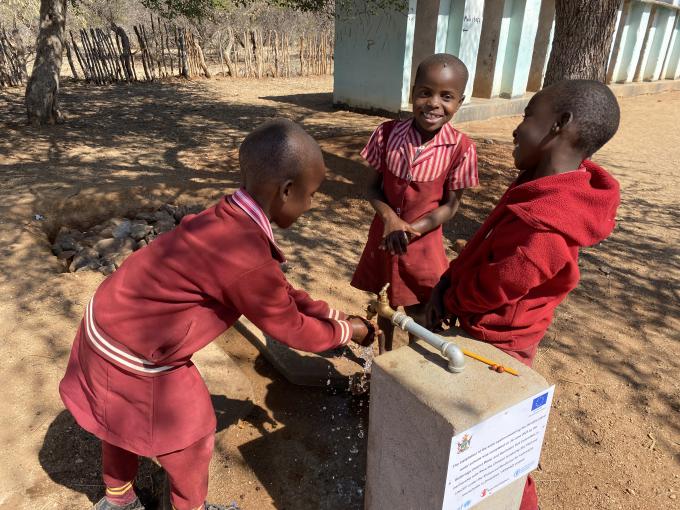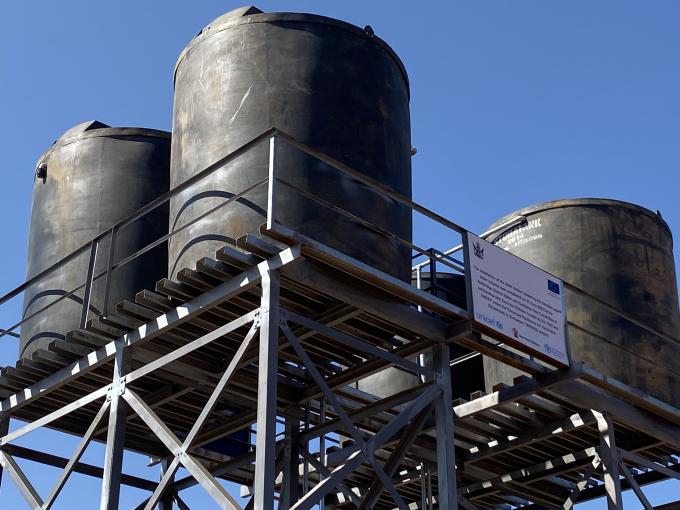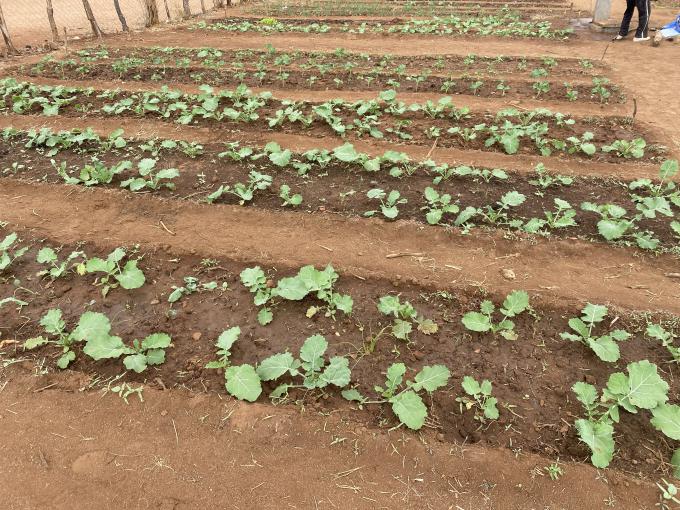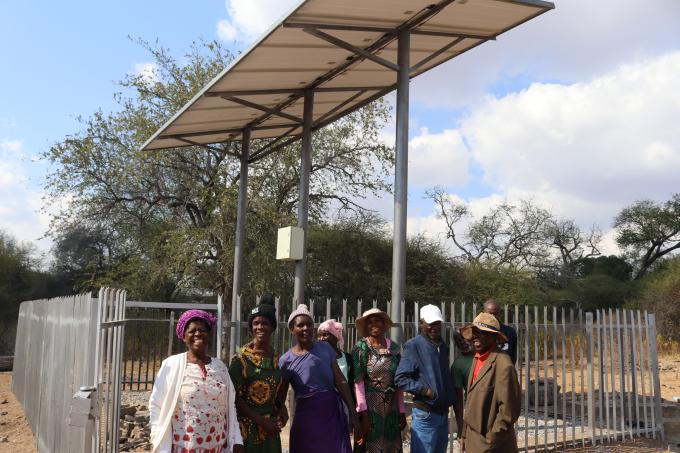From Water Crisis to Abundance at Dendele School

“We used to fetch water at a borehole that is far from school. The water was rusty, and it caused stomach pains, but we had no other choice,”Flora said.
During the rainy season, the situation worsened as a river separated the school from the borehole, forcing children and teachers to fetch contaminated water from the river banks. The path to the borehole was unsafe. Children had to navigate through a thick bush, putting them at risk of sexual assault or encounters with venomous snakes.
“We were scared we would get raped or get bitten by snakes. We would always walk in groups so that we can at least protect each other,” Flora alluded.
The lack of water not only affected the students' health and well-being but also took its toll on the morale of the teachers. The absence of water at the teachers’ cottages meant they had to undertake the laborious task of finding water after a long, tiring day in the classroom. The school could not conduct gardening activities, an essential component of their feeding program.
“Teachers were demotivated. We had several competent teachers transferring to other schools and these changes affected our learners. Imagine going through an entire day of teaching without access to water for drinking or basic sanitary needs,”
“Without water, we could not produce vegetables to feed children during lunch time. We could not even grow fruit trees or flowers within the school compound,” Dube, Acting School Head explained.
Handwashing facilities were inadequate, leaving the entire school vulnerable to disease outbreaks. Learners had to fetch water from the distant borehole to clean the toilets, further disrupting their learning schedule.
“Sometimes, after using the toilet, we could not wash our hands because the handwashing station would be empty. In the afternoon we had to go to the borehole carrying two litre bottles each, to fetch water to clean our toilets. It was tiring,” Flora, said.
The Transformation of Dendele
Once plagued by a severe water crisis, the school now enjoys abundant water supply, thanks to the solar powered piped water scheme recently installed by Save the Children in partnership with Beitbridge Water and Sanitation Sub-Committee. This intervention was made possible through support from UNICEF and Food and Agriculture Organisation (FAO) under the European Union-funded Enhanced Resilience for Vulnerable Households in Zimbabwe (ERVHIZ) project.

Two more 10,000 litre tanks are directly supplying around 250 households with clean water through six taps dotted around the community, with the furthest water tap being nearly three kilometres away from the water source.
"It's not only the school that is benefitting,” Dube remarked. “The whole community and even the livestock are benefitting. Our learners and their families now have access to clean water nearer to their homes. Most of our learners, especially girls, used to come to school late because they had to fetch water far from their homes. This really affected them, and you’d notice that they will be tired before starting class. We now hope to attract more good and competent teachers.”
With water now readily available, the once-neglected school garden has sprung to life, promising an abundant harvest of fresh vegetables for the school feeding program. Eagerly clutching bottles filled with the precious liquid, children take turns to lovingly tend to the vegetables freshly sown in their vibrant garden.
“This garden will benefit our learners in so many ways. We recently planted a variety of vegetables including pumpkins, carrots, beans and other leafy greens that are rich in essential nutrients. We will now get fresh vegetables to feed our children ensuring they learn on a full stomach, enhancing their well-being and concentration in class. The active involvement of children in tending to the garden will help them grow to being young people who are hard-working and environmentally conscious. Taking part in the farming activities also fosters a sense of responsibility in them, a lesson they will carry even after they leave the school,” Said Moyo- Senior teacher.

Preserving the Precious Gift
"We have been given this precious gift of water, it is now our responsibility to preserve and protect it so that our children do not suffer as they did before," said Mlilo, a parent and member of the Water Point Committee.
The Dendele community has shown a strong sense of community ownership and commitment to ensuring that they never run short of clean water again. They actively participated in the installation of the piped water scheme, providing manual labor. Additionally, they established a Water Point Committee consisting of five women and four men who are responsible for the maintenance of the water source.To ensure long-term sustainability, Save the Children and Beitbridge Water and Sanitation Sub-Committee provided training and support to the Water Point Committee, enabling them to effectively carry out their duties.
“As a committee, our first task was to mobilize the community to contribute towards paying a watchman who now guards the water source at night, preventing vandalism or theft of the solar panels. The water system operates without electricity, utilizing energy from the sun, which is an advantage in this hot area. Our collective effort is crucial in protecting this valuable resource, as it benefits everyone and most important, our children,” Mlilo, concluded.
 Zimbabwe
Zimbabwe 